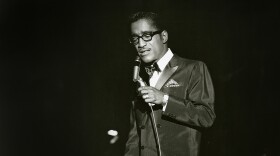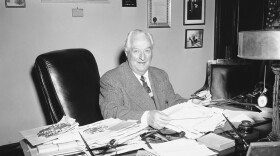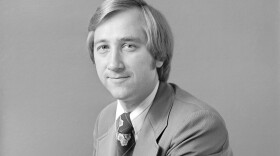Last time, we talked about the fiftieth anniversary of Howard Hughes moving to Las Vegas.
After getting here, Hughes went on a shopping spree. He bought the Desert Inn, Sands, Frontier, Silver Slipper, and Castaways. He took over the Landmark and finished building it. He bought the Krupp Ranch in Red Rock Canyon—now Spring Mountain Ranch State Park. He purchased the North Las Vegas Air Terminal and George Crockett’s Alamo Airways. He bought Channel 8. And he bought land, lots of land, throughout Nevada.
He tried to buy the Stardust Hotel, but the Justice Department stepped in with anti-trust concerns. He made an offer to Don Reynolds for the Review-Journal and other properties. Hughes already had a good relationship with the Sun’s Hank Greenspun, making a loan to him. He also wanted to buy ABC television, but his racism prompted his to become angry at the network for airing a show with what he thought was an interracial couple.
Stories spread about Hughes’s, uh, quirks. He apparently wanted Channel 8 so he could watch movies on TV in those days before DVR’s, and he would have the station restart a film if he missed part of it. He subsisted mostly on soup and ice cream, and one of his executives, Burton Cohen, once had to do a special order with Baskin Robbins to satisfy his palate. He canceled the Easter Egg hunt at the Desert Inn because he feared children spreading germs.
But he also helped education. He provided the seed money for the University of Nevada Medical School. His funding bailed out Elko’s failing community college and really did a lot for what is now Great Basin College, as well as the rest of the state’s community colleges. Beyond Nevada, a medical institute in his name has done important research.
And then, in 1970, he was gone. There was a power struggle within his empire. Maheu was fired, and the so-called “Mormon Mafia” took over. Maheu wound up in a prolonged lawsuit against Hughes. So did Hank Greenspun, who eventually won a settlement. Meanwhile, Hughes moved to the Bahamas and other points before dying in 1976 on an airplane heading for a Houston hospital. He had shrunk to about a hundred pounds and had needles broken off in his limbs.
Hughes left no will … or a lot of wills. One gave part of his estate to Melvin Dummar, a rural Nevadan who allegedly found him wandering in the desert. A trial led to the decision that Hughes’s cousins would inherit his estate. William Lummis took over, sold the hotels and casinos, and concentrated on real estate. The biggest result is the award-winning master-planned communities that comprise Summerlin, and several other developments.
Hughes left a mixed legacy in Nevada. We’ve talked about some of the good and the bad. Part of the problem is the myth: that he cleared out organized crime. He did no such thing. That was the work of federal, state, and local officials and law enforcement. Hughes did cash out mob ownership at his hotels, and that may have contributed to the process, but some of the same people continued to work for him or at other hotels.
Maybe his biggest contribution was that, as eccentric as he may have been or seemed, he lent more credibility to Nevada when the state needed it. If only he also could have helped himself.








